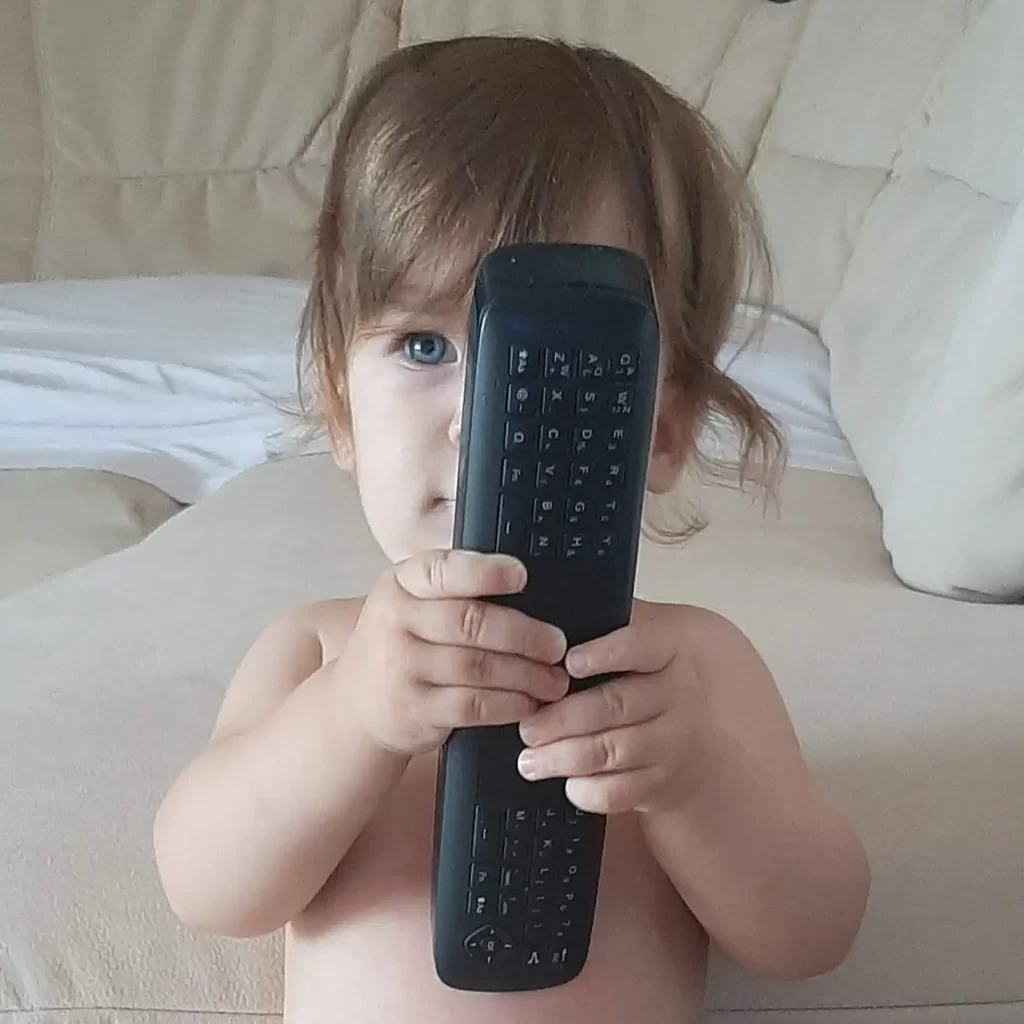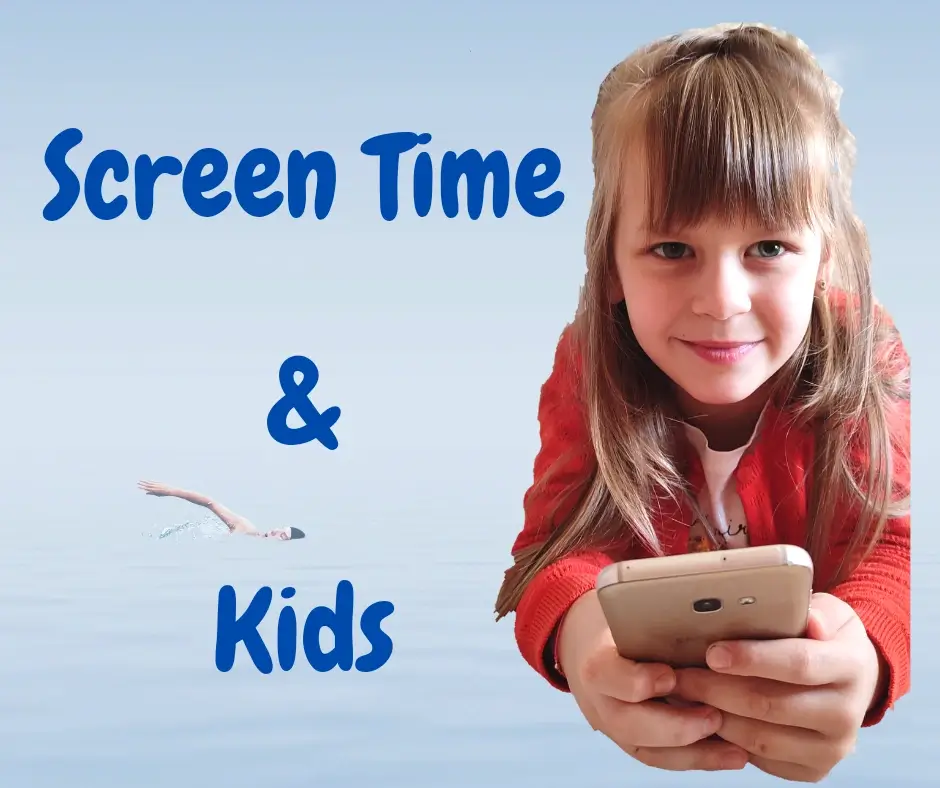In the reality of screen time for kids, it is crucial to understand the recommended guidelines, handle it effectively, and be aware of the potential drawbacks. There are more than10 reasons why screen time is bad for kids and 6 pros counted in this article.
Organizations like the World Health Organization and the American Academy of Pediatrics provide guidelines on age-specific screen time duration and type of media content.
Balancing active play and passive time spent in front of a screen is essential, and tools such as parental control can assist in monitoring and regulating usage. It is important to establish screen-free zones, engage in physical activities, and involve the whole family in alternative activities.
Cons of excessive electronic screen time include health issues, sleep problems, behavioral issues, educational impact, and reduced social skills. Prioritizing physical activity and maintaining a tech-life balance is crucial for children’s well-being.
Kids Recommended Screen Time by Age Chart
When it comes to screen time for children, it is important to follow age-based recommendations to ensure a healthy and balanced approach. Guidelines provided by organizations like the American Academy of Child and Adolescent Psychiatry help in determining appropriate screen time limits for different age groups
0 – 18-Month-Olds
- This young kid should have no access to any kind of screen
18 – 24 Months-Old
- A short period of educational screen time watched with a caregiver
- Most babies’ brain develops by the age of 2. It is important that kids this age explore the environment and experience the world around them with sight, texture under their fingertips, smell, and feel with interacting and playing.
2 – 5-Year-Olds
- 1 hour per day on weekdays, and mostly 2-3 hours on weekends
- These young kids should limit their screen engagement on educational content – learning colors, letters, shapes, etc.) There are many apps provided for kids this age they will love. I remember my girl enjoying an app for learning animals in English. It was quite interesting to her as English is not our native.
6 – 17-Year-Olds
- 2 hours a day of recreational screen time. This means that they will need to use it more for homework and school obligations in general
Data were taken from the American Academy of Child and Adolescent Psychiatry.

RELATED ARTICLE: My toddler won’t eat! What now?
How Does Too Tuch Screen Time Affect Your Child’s Behaviour and Development
Excessive screen time usage in children can have various negative impacts on their behavior and development:
- Behavior problems
Emotional, social, and attention issues can arise when device exposure exceeds age-appropriate limits.
- Educational problems
Excessive engagement with digital devices is associated with poor academic performance and testing outcomes.
- Social problems
- Insufficient physical interaction can result in limited awareness of social cues and proper social interactions.
- Lack of face-to-face interaction hinders the recognition of facial expressions, tone of voice, and body language crucial for social development.
- Obsessive and addictive behavior
Captivating digital content can activate the brain’s reward system and lead to obsessive and addictive behaviors.
“Virtually all games and social media work on what’s called a variable reward system, which is exactly what you get when you go to Mohegan Sun and pull a lever on a slot machine. It balances the hope that you’re going to make it big with a little bit of frustration, and unlike the slot machine, a sense of skill needed to improve.”
says Pediatrician Michael Rich, the associate professor of social and behavioral sciences at the Harvard T.H. Chan School of Public Health

- Reduced empathy
- Excessive device usage reduces children’s ability to read human emotions and control frustration, resulting in diminished empathy.
- Insufficient non-verbal communication, such as smiling and talking, impairs brain development.
- Obesity
Insufficient outdoor or physical activity, coupled with excessive device usage, increases the risk of childhood obesity.
- Sleep problems
Too much electronic screen exposure close to bedtime can disrupt the sleep cycle and lead to insomnia due to the impact of emitted light on the brain.

- Reduced brain activity after prolonged digital engagement
Ongoing research conducted by the National Institute of Health indicates that excessive device usage in children can lead to a decline in memory, perception skills, cognitive abilities, and IQ scores.
- Overstimulation
- Signs of overstimulation include aggressive behavior, meltdowns, defiance, inability to sit still, and irritability.
- Some children may exhibit aggression when engaged in gaming or screen-based activities for extended periods.
- Violence
Viewing violent content on television or engaging in violent video games may influence problem-solving approaches based on what children observe, according to the American Academy of Child and Adolescent Psychiatry.

- Vision problems
Minors who spend too much time on digital devices have a higher risk of irreversible eye damage.
- Physical problems
Prolonged screen time and online activity often lead to poor posture, particularly affecting the developing spine, as children tend to hunch over while using phones or tablets.
- Disturbed family relationships
Excessive device usage can lead to feelings of neglect and reduced perceived love from parents, potentially disrupting youngsters’ mental development.
Parents need to be mindful of these potential drawbacks and establish healthy boundaries to ensure the overall well-being and development of their children.
How to Reduce Screen Time for Toddlers and Kids
Encouraging alternatives to reduce screen time for kids, such as engaging in outdoor activities, reading books, and participating in interactive play, can promote physical and cognitive development while fostering social skills and emotional well-being.
- NO SCREENS DURING MEALS AND ONE HOUR BEFORE BEDTIME: This rule is important for so many reasons. Mealtime should be family time spent together and bonding while eating and talking all together at the same table. It should be a rule you all sit together as much as you can.
- THEY SHOULD EARN SCREEN TIME: Have your kid’s chores list ready and what they need to do first
- DON’T MIND “I AM BORED” STATEMENTS: Kids need some regular dose of boredom. It teaches them how to cope with frustrations and how to control their impulses. When always stimulated by screens, they never learn how to rely on themselves for entertainment. This leads to being frustrated and lowers their ability to be creative and motivated.
- ALWAYS MONITOR THEIR ACTIVITY: Be aware of the games they download or what content are they watching. My girl always needs to ask me before downloading something and sound needs to be heard, so I can hear what she’s watching or playing.
- SET BOUNDARIES AND STICK TO THEM: When kids have limits that they are already used to, it’s easier to tell them to put the phone down. That way you will avoid frustrations, meltdowns, or tantrums. Also, limits are important for all the reasons stated above.
- ENGAGE WITH YOUR KIDS: Spend some quality time with your kids. It’s important you do things together. For example, my kids love doing crafts with me. We sit at the table and draw, make stuff, write poems, or play a game.
Here is one of our craft ideas: Make your dad “I love you” card!

- ONE SPACE FOR SCREEN TIME: This can be harder for teens, but when you have younger kids they should spend electronic entertainment in one place, for example, the living room. It will lower the time on screens while in another room trying to trick you.
- TRY TO KEEP THE CONTENT EDUCATIONAL: I know, kids these days love TickTok, YouTube, and watching silly videos. For example, my girls watch food pranks that are horrible to me, but I do limit them often. Download educational but fun games that will keep their attention.
- SET AN EXAMPLE: Besides kids, we, adults also have lots of screen time. Especially when working from home. I try to do most of my work while the kids are at school
- GREEN TIME: Spend time with kids outside as much as you can. Nature play has so many benefits for our little ones.
- READ TO YOUR KIDS: Reading is so beneficial for kids from birth. Once they can read for themselves, try to encourage them to enjoy this activity and make them fall in love with books. Real books, not e-books!

RELATED ARTICLE: What is so special about stickers and toddlers?
My Interesting Experience on Screen Time
About a year and a half ago, when my daughter was 5 years old, she did something that made me quite angry. In the heat of the moment, I impulsively imposed a severe punishment: “No phone for a month!”
Almost instantly, I regretted my words, realizing that it was an overly harsh consequence.
Attempting to rectify the situation, I wrote “no. 30” on a board, determined to stick to my decision without making any exceptions.
To my surprise, my daughter’s reaction and resilience amazed me. She accepted the punishment without complaint or distress. Even throughout the winter season, she never once mentioned the absence of the phone and seemed perfectly content – a quality that truly astounded me.
Although I stopped counting the days after just a week, she continued to enjoy herself, unaffected by the lack of screen time and media consumption.
This experience taught me the power of clear consequences and the resilience of children when it comes to finding alternative sources of fun and entertainment. It also highlighted the importance of carefully considering the severity of punishments and the potential impact on a child’s well-being.
- Whenever I see that she is overwhelmed and nervous during screen time, I just take the phone for a time-out. She herself mostly realizes that she needs a break. Sometimes she complains but forgets about it soon.

The Pros of Screen Time for Kids (with some new studies)
- EDUCATIONAL VALUE: Kids do and can learn a lot during their online time. They also need it for school-related homework and research. Take yourself as an example: Whatever info you need, you just google it, right?
- Playing video games can improve motor skills and coordination.
- SOCIALIZATION: Texting, and sharing opinions and information is a great way to communicate with friends and family.
- Research out of Oxford, Cardiff, and Cambridge Universities finds that 1 – 2 hours of screen time a day leads to higher levels of SOCIAL AND EMOTIONAL WELL-BEING versus those who reported no device usage.
“Very few children, if any, routinely use television and device-based screens enough, on average, to show significantly lower levels of psychological functioning,” said Professor Andrew Przybylski, Director of Research at the Oxford Internet Institute. “Instead these findings indicate that other aspects of digital engagement, including what is on screens and how caregivers moderate their use, are far more important.”
- The new study: As time goes on, there are some new studies published in the journal PLoS ONE that suggest spending time on screens is unlikely to be directly harmful to young children. Even if the negative outcomes were not identified as major and screen time wasn’t established as the direct cause, a review of research suggests we are unable to rule out these associations.
- MOMMY TIME: You get to do some housework in peace while kids have screen time.

Best Apps for Limiting and Monitoring Screen Time:
#1 FamilyTime
From their site: ˝FamilyTime is the ultimate parenting aide that will keep you posted on your children’s whereabouts and let you manage screen time and block apps on their phones with just a tap. What’s more: your kids can reach out to you instantly if they ever get into trouble with instant panic alerts. The future of smart digital parenting is now!˝
Read more about the parental screen time app – FamilyTime for kids
Price: Starts from 27$/mo
#2 FREEDOM
Here is what they say about their app: “Many families use Freedom to manage screen time, reduce distractions during online schooling and homework, and promote digital wellness. Parents and caregivers have the option of installing the software on kids’ computers to set up website and app blocks on a regular schedule or as-needed basis. We also offer browser extensions that can limit browsing to only educational websites, set time limits, or collect statistics on browsing habits.“
Read more here at their guide and FAQ: Freedom App for limiting screen time
Price: From 2,50$/mo
#3 ScreenTime
˝Simple screen time management and parental monitoring tools that enable parents to have proactive discussions about digital rules and usage.˝
Read more about ScreenTime here.
Price: There is a FREE and paid version
#4 FamiSafe
˝FamiSafe lets parents control screen time, track real-time location, and detect inappropriate content on kids’ devices.˝ FamiSafe is one of the best-rated screen time kids limitation and the tracker app.
Read more about the FamiSafe app here.
Price: from 10,99$/mo
#5 WA Family Online
Limit and monitor Screen time app for Android:
¨Do you want to be sure that your kids and family are safe?
Check how much time spend on Wapp.
Monitor the online/offline activities of your family members.˝
Read more about WA Family Online
Price: FREE
Screen Time Alternative Ideas for Kids
- Crafting is something we never get enough of making a card for dad, mom, and granny, a gift out of clay, or just messing with playdough or kinetic sand. All kids love it!
- Start buying them kids’ magazines. Didn’t you love those magazines when you were kids? Solving kids’ crossword mazes, and find-the-odds tasks. Oh, it can be so exciting to do! And a great idea on how to lower digital consumption. I have one of those printables for free.
- Invite their friends over. I never regret inviting a friend, they spend the whole afternoon playing and I get to do a lot of things I usually can’t.
- Print out some worksheets they can work on and have fun. The internet is flooded with great material for kids.
- Print out coloring pages, before coloring teach them how to cross out the lines by placing a page on a window with clean paper on top. My girls love this activity. It saves my toner, but also teaches them patience and preciseness,
- Plant something with your kids if you have a garden. Or if you don’t maybe some house plant they will need to take care of.
- Puzzles and board games or brain teasers
- Cook and bake with your kids. You will be amazed how they love it.
- Find YouTube tutorials with simple, easy drawing video ideas and make a stunning painting. See my girls in the video below and how they enjoyed it. We made it a whole afternoon activity. Drawing something together with kids can bring so much fun! In our videos, you will find the link and steps on how to draw it yourself.
- Let them put some makeup on their dolls or even on you. I guarantee you some fun there, LOL
- Make a steering wheel out of cardboard and let them decorate it.

The Bottom Line for Pros and Cons of Screen Time for Kids
As parents, it is our responsibility to determine the appropriate limits and benefits of screen time for our children, taking into consideration their behavior and developmental progress. By considering the advantages and disadvantages of screen usage, we can make informed decisions regarding the boundaries that are best suited for our child’s needs.
Children are reliant on screen time to stay updated in today’s modern world. We must equip ourselves with knowledge and ensure that their screen time is as safe as possible.
Stay safe and remember…
WE ARE STRONGER THAN WE ALL THINK
MORE FOR YOU TO READ:


3 comments
When I was a kid, TV was the bad influence, now TV is good, and IPAD/YOUtube/Video Game must be controlled
Yes, time is changing… Who knows what’s it gonna be in 50 years😁. We need to keep up.
Screen time is so challenging but I work hard and it’s paid off. My kids are so much more active and creative when I really limit the screen time!